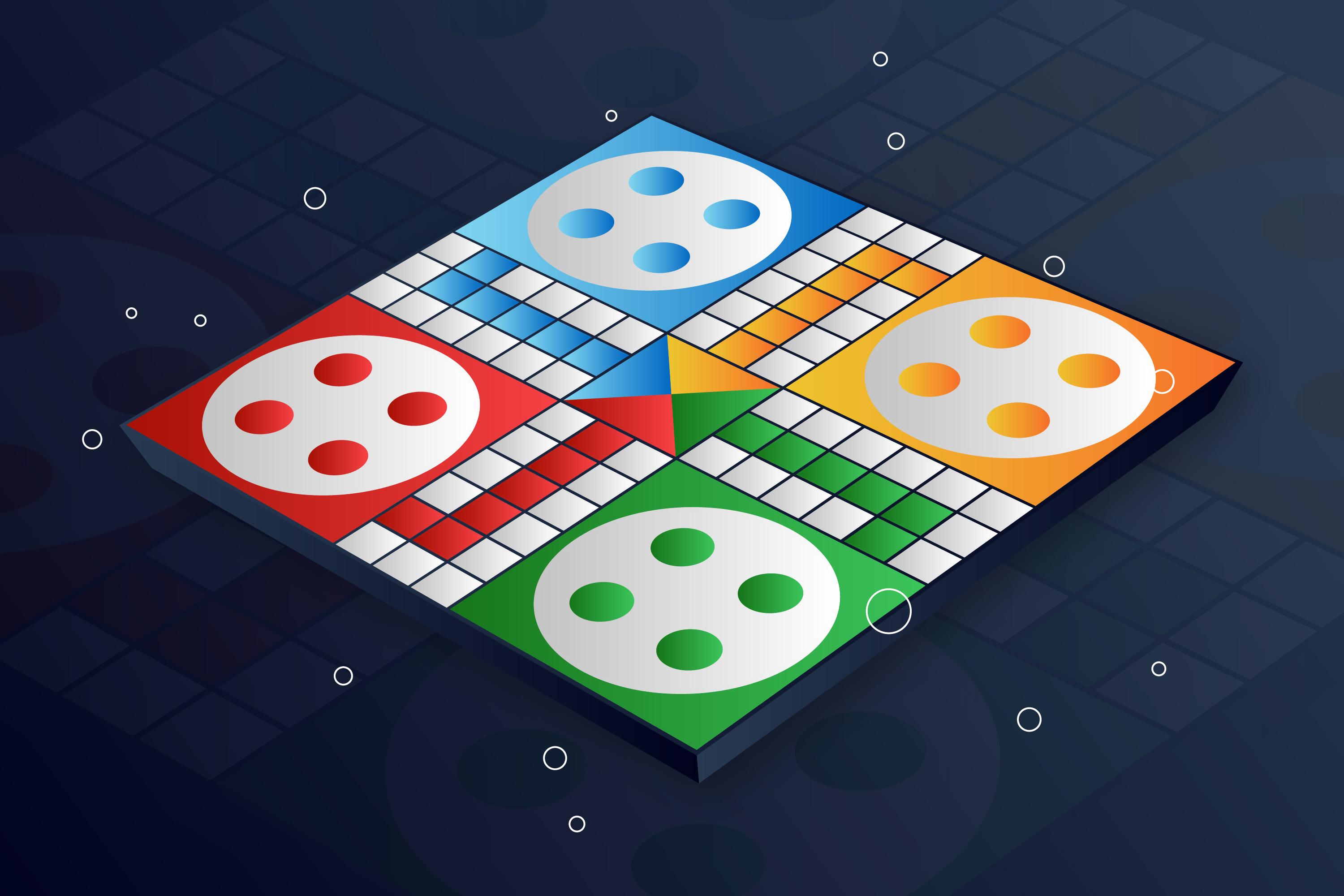Ludo Allure Of Ludo
Ludo is one such game that most of us remember as a childhood favorite. It has now again made its grand re-entry into this totally digital present world. Being a game development company, we understand the whys behind this classic and the complications that go into developing it for digital platforms. In this post, we will go into detail about the step-by-step making of the Ludo game according to the data available in an existing case study. Further, we will describe the steps for ensuring an engaging and smooth experience for the gamers. Ludo is something simple yet sophisticated at the same time—extremely wide among all generations. Its rules allow any age group to use the game with much ease. It is basically a race whereby the aim is to have all the four tokens move from start to home, which means running through the board and beating others. What really makes Ludo an evergreen classic is the amalgamation of three factors: strategy, chance, and competition.
Development Process Conceptualization and Planning
The development of a Ludo game would start with conceptualization. This would include all the details about the rules of the traditional game itself and how they are going to be broken for digital media. Brainstorming on several new features that can be added for enhanced gaming, such as multi-player options, opponents with AI controls for solo enjoyments, etc., and other customization features.
At this stage, we will also plan out the project by setting up milestones and resources. Proper planning can be done at this stage to make sure that we are on course to achieve our set development goals.
Game Interface Design: A huge part of what really powers a game to success is actually user interface and user experience design. For Ludo, that would be an intuitive design with esthetic design, but at the very same time, it would ensure that it retains the original sense of gameplay. Our designers make a virtual board resemble a physical board game's board. Of course, advanced design does allow new dimensions in the form of animations and sound effects to add some stimulation to the game.
Development of game mechanics actually means translating the rules of the game into a code. We chose Unity due to the fact that it's easy to use and has such awesome features as bringing a responsive game environment smoothly into life. Our developers write a game logic code: token movements, dice rolling, turn-based gameplays. We ensure all the game mechanics are correct and run seamlessly on any device.
Integration With Multiplayer And Artificial Intelligence: Probably the major feature associated with a digital Ludo is playing its multiplayer mode with other people over the internet. We intend to introduce multiplayer gameplay through tried and tested networking solutions to make sure there isn't any lag in gameplay. Additionally, we also develop AI opponents for users who want to play all by themselves. The AI will be set up in such a manner that it provides ease levels corresponding to the expertise of the player.
Furthermore, it requires thorough testing for the search and fixing of all the bugs or problems. All types of tests, from functional and performance to compatibility, are carried out to see that the game works well in different and tough situations. The QA team goes all out in testing the game so that the user has a flawless experience.
Deployment and Maintenance: Once the game passes all tests, we deploy it on Android, iOS, and the web. After deployment, we continue monitoring the gaming application while soliciting updates for fixing problems and releasing new features relating to the user's desires.
Case Study: Now, to elaborate on the success in game development for Ludo, let's take a perfect example of "Ludo King," one of the most famous and top-rated Ludo games. Millions of downloads were attracted, and enormous active users were received. Gametion Technologies Pvt Ltd has huge principles built on its gameplay. But why did it succeed?
User Engagement: Ludo King has picked up as a game with very engaging gameplay and a pretty user-friendly UI. There are online multiplayers and offline modes that attract a great number of users. Thus, to play with friends and family anywhere across the globe has been a new level of user engagement.
Frequent Updates and Feature: Ludo King's developers never seemed to stop updating, as they continued putting in new elements that would refresh and thrill gameplay. They were able to add themes, voice chats, and seasonal events—features that became so essential for long-term player retention.
Monetization Strategy: That has been the balancing act Ludo King has done with their in-app purchase and advertisement monetization. One can buy in-game virtual money to purchase a host of themes and many items in the game. They balanced the ad strategy in a way that it doesn't hamper the gameplay experience, actually.
Availability onon All Platforms: Ludo King is designed to be on all major platforms: Android, iOS, and the web. This has been another key reason for broad acceptance. Inter-device integration makes it easy to have any device and play games anywhere and anytime.
Challenges of Ludo Game Development
Though the development process looks pretty simple, yes, it has its own challenges. Some of the common challenges that we face are as follows:
Fair Play: One of the critical challenges when developing a game of Ludo is that it has to be fair. The player needs to feel like everything is just working right; also, all dice rolls should seem random. Our algorithms are robust, and for randomness, we have random number generators that ensure there is no bias, making the game completely unbiased.
Development of game mechanics actually means translating the rules of the game into a code. We chose Unity due to the fact that it's easy to use and has such awesome features as bringing a responsive game environment smoothly into life. Our developers write a game logic code: token movements, dice rolling, turn-based gameplays. We ensure all the game mechanics are correct and run seamlessly on any device.
Network Latency: Too often has network latency killed multiplayer games. We deal with advanced networking solutions, then optimize our code for low latency—meaning a good multiplayer experience.
Multi-device compatibility: Now, one challenge that still remains is to make certain that gameplay is smooth across different devices with different specs. We run a lot of compatibility testing and optimization to make sure that the game plays well on high-end and low-end devices.
Keeping User Interest Alive: If the players are going to get involved over time, then the game must be updated time and again with new features and glittery add-ons. We listen to the user through the feedback it provides regularly and keep on introducing new elements so that interest and excitement remain there at all times.
Our Approach to Ludo Game Development
As game developers, we strongly believe that players must genuinely love games developed by us. Here is an overview of how we develop Ludo games:
User-centric Design: We are creating games in every area from the player's perspective. Starting with design for the user interface and moving to the design of game mechanics—everything gets pulled through, putting the player first. We're looking for a game that's smooth and pleasing to use if possible.
Continuos Improvement: We believe in the process of continuous improvement and innovation. We are closely following the industry trends and users' opinions to continuously improve our games. This allows us comfort in knowing that our games stay attractive to a fast-moving market.
Collaborative Development: Together, we work for your success. Our designers, developers, and testers comprise a team of brilliant minds sharing the idea of delivering the best ideas. We maintain an appreciable amount of collaboration in our working culture, ensuring no gap for the free flow of thoughts and ideas.
Quality Is Our Focus: Quality is the key to our drive. In line with our regard for quality, we take our games through stringent tests to ensure they are passed out in the best quality. The quality remains to be that hallmark that keeps solid and fun games.
Conclusion
Development of a Ludo game simply means it should come essentially from a deep understanding of game-playing and through a strictly player-oriented approach. Then comes the quality-first mindset. Not only will this be desirable but quite reasonably feasible if we follow structured development and learn lessons from case studies that witnessed the success of Ludo King in building an engaging and enjoyable Ludo game loved by players. This will, in turn, make us look forward to the days of innovation and improvement that we can implement in our own digital world, bringing in many more classic games. We will thus be in a position, through this, to entertain people and bring them close to one another, as time has done for Ludo.

